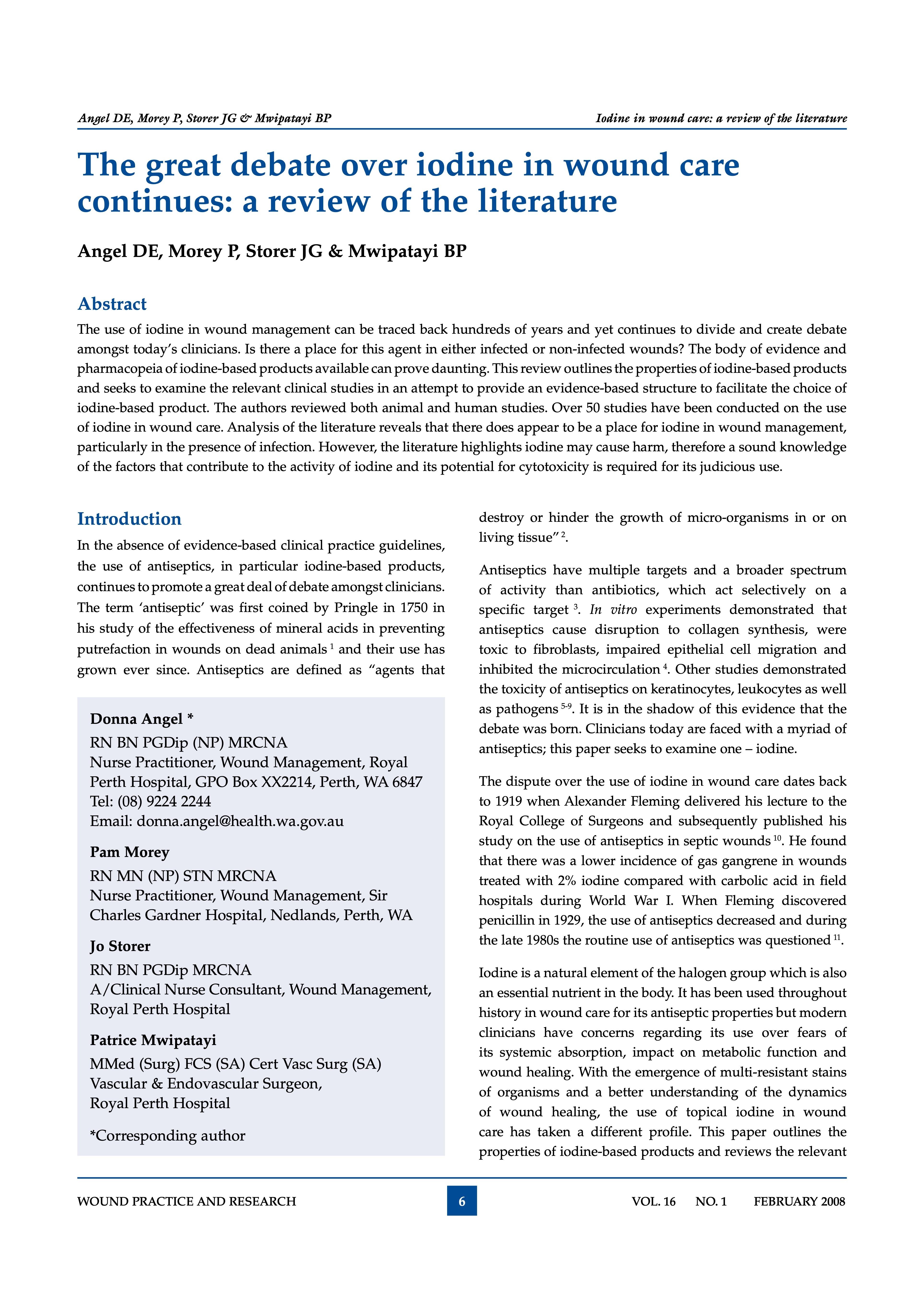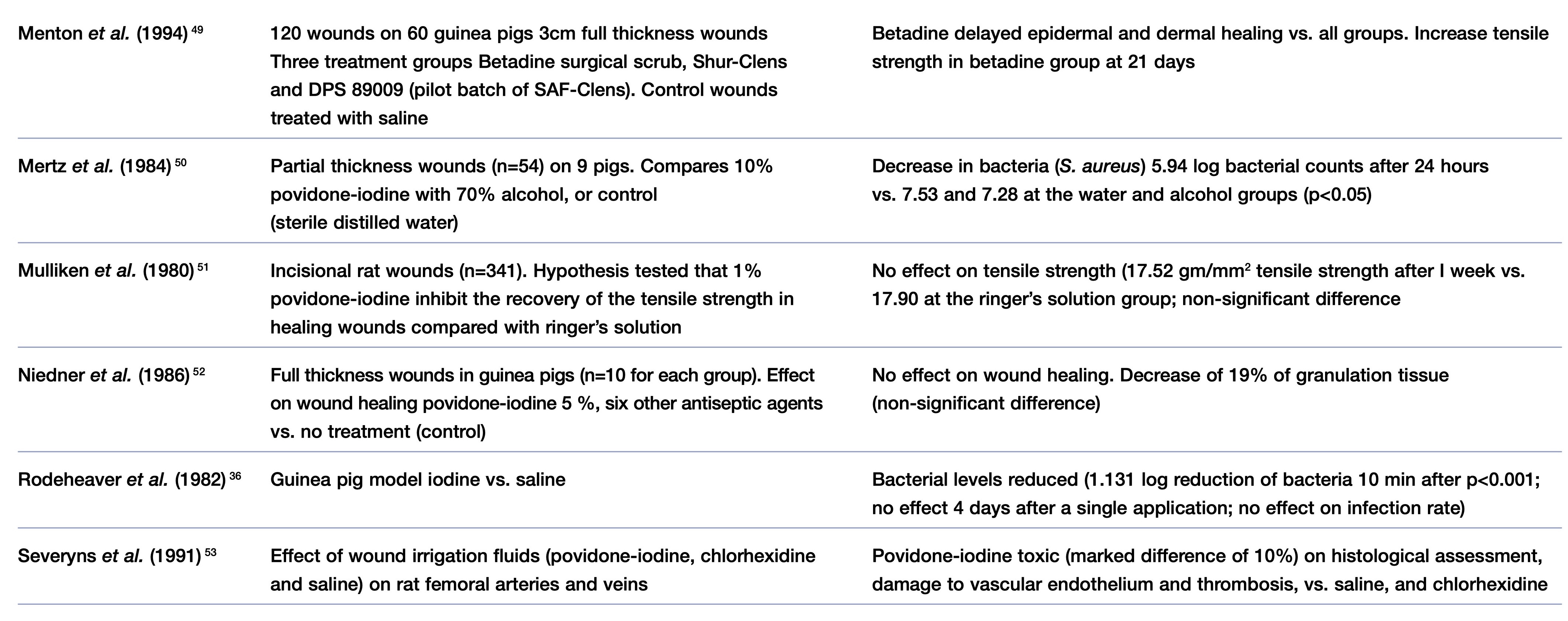Iodine in wound care: a review of the literature
Abstract
The use of iodine in wound management can be traced back hundreds of years and yet continues to divide and create debate amongst today’s clinicians. Is there a place for this agent in either infected or non-infected wounds? The body of evidence and pharmacopeia of iodine-based products available can prove daunting. This review outlines the properties of iodine-based products and seeks to examine the relevant clinical studies in an attempt to provide an evidence-based structure to facilitate the choice of iodine-based product. The authors reviewed both animal and human studies. Over 50 studies have been conducted on the use of iodine in wound care. Analysis of the literature reveals that there does appear to be a place for iodine in wound management, particularly in the presence of infection. However, the literature highlights iodine may cause harm, therefore a sound knowledge of the factors that contribute to the activity of iodine and its potential for cytotoxicity is required for its judicious use.
Conclusion
Iodine has been shown to be an effective antiseptic; however, the use of iodine in wound management remains a contentious issue for clinicians amidst concerns for its efficacy and impact on wound healing. A review of the literature reveals that there is a place for povidone-iodine in wound care in the presence of infection. Although there was evidence that demonstrated wound healing was delayed, the majority of studies illustrated that it did not impact on wound healing in the presence of wound infection. Cadexomer-iodine has a positive impact on healing in the chronic wound environment.As there are no human studies examining the effects of povidone-iodine in the non-infected acute wound, one should use povidone-iodine with extreme caution, particularly those healing by secondary intention, such as wounds that have been surgically debrided, or split skin grafts in the absence of clinical signs of infection due to the detrimental cytotoxic effects on tissue. As illustrated, the systemic effects must always be considered.





















 留言列表
留言列表
 線上藥物查詢
線上藥物查詢 